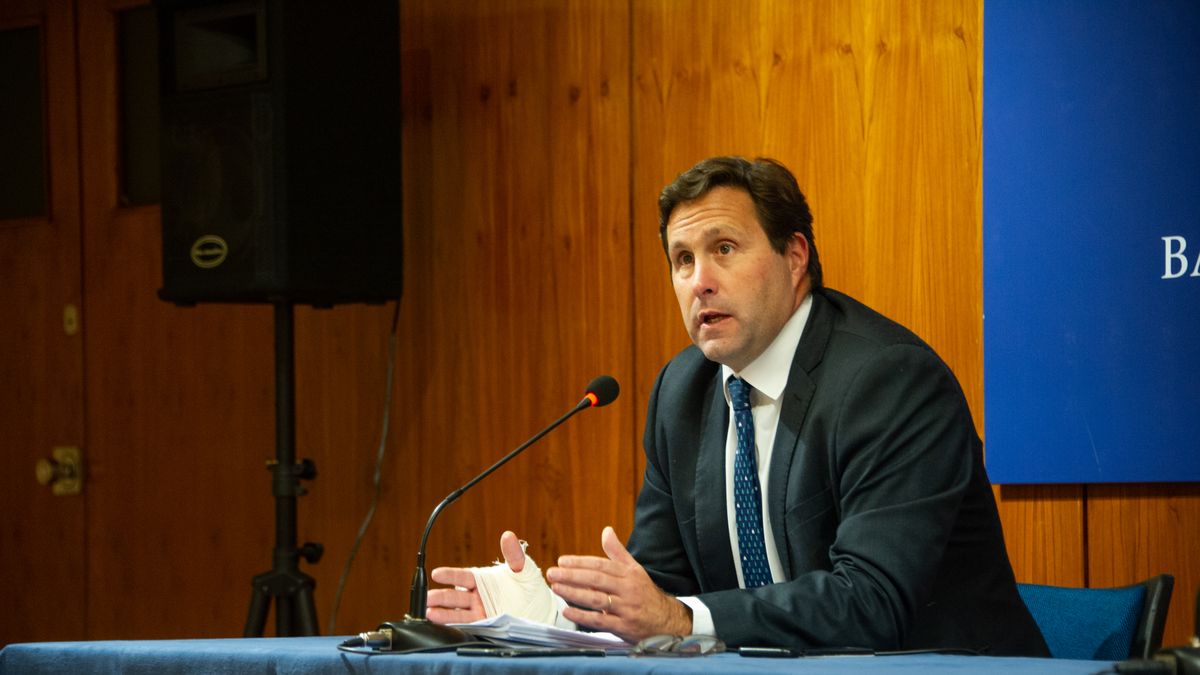The owner of the Central Bank of Uruguay (BCU), Diego Labat, appeared together with the government’s economic team in front of the Budget and Treasury Committee of the Senate to defend the bill Accountability. The decline in inflation and the price of the dollar were the main themes of the appearance.
Criticism and questioning of economic management came from both broad front like Town meeting, two opposing sectors that, however, have coincided on many points throughout the management of the Multicolored Coalition. In this sense, the senator and lobbyist leader, Guido Manini Rios He affirmed that according to his perception, “the drop in inflation is mainly supported by the exchange rate, in keeping the dollar at the levels it is at today, notoriously lower than at the beginning of this government.”
In this sense, the lobbyist consulted the economic team —headed by the Minister of Economy and Finance (MEF), Azucena Arbeleche— if the government keeps track of how the decline of the dollar and the exchange rate delay “it is affecting” work, industry, commerce, export sectors and tourism.
“Is there any forecast that this situation will change in the future or will it continue in this reality, in which the country is little or not competitive at allespecially with those who produce the same things and export to the same markets as us, like neighboring countries?” asked Manini Ríos.
For his part, the senator of the Broad Front, Mario Bergara, He also advanced along the exchange line by stating that there is “a downward exchange rate misalignment should not be happening”, and that this is affecting the country’s competitiveness at a global level, while the government does not act despite the fact that “it could perfectly have a different policy to smooth” the fall through the intervention in the exchange market.
“We understand that there should be a conduct of the government and the Central Bank in this matter that helps the collapse of the exchange rate not have the magnitude that it has, keeping all balances that it is necessary to maintain”, added the opposition legislator.
The government’s response: the need to lower inflation and the cost of buying dollars
At the time, the president of the BCU, Labat, once again stressed the need for inflationary control to guarantee the growth of the economy, and pointed out that “the drop in inflation is not supported in the exchange rate misalignment.
While Labat acknowledged that there is a misalignment between 12% and 15% Regarding the level of fundamentals, he also maintained that “it will surely be corrected.” Along these lines, he ruled out Bergara’s proposal to intervene in the exchange market since, according to the president of the BCU, it is necessary to have “a good diagnosis” of why the exchange rate moves as it does and act from there. . “We do not deny the tool to intervenebut it must be used when we understand that it is the best for the whole society”, he pointed out.
“I accept that there may be those who understand that it is appropriate to intervene, but I maintain that there are two things that are very relevant when it comes to doing so,” Labat said. First, the change in the agent behavior which would imply: “clearly, if the Central Bank grants them a floor or a ceiling, it is much easier for them to enter, make speculative investments and leave quickly once they want to, since the Central Bank is going to give them the dollars they need,” he said.
Secondly, he argued that intervening in the exchange market to buy dollars and hold the exchange rate requires resources from the treasury “The Central Bank has a study that establishes that between the years 2009 and 2022, the cost of intervention was estimated at 1.8% of GDP, which represents 90 million dollars per year. Therefore, you have to be aware of the cost and, as I said, even if we wanted to intervene, it should never be thinking of sustaining a level of the exchange rate, but simply to avoid some volatility,” Labat explained.
Source: Ambito




